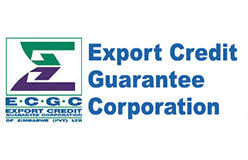
THE Export Credit Guarantee Corporation of Zimbabwe (ECGC) has signed credit guarantee agreements with 12 banks and 34 microfinance institutions to support small and medium-sized enterprise (SME) exporters across the country, businessdigest can report.
ECGC provides financial guarantees that protect lenders in the event of borrower default. These guarantees are extended not only to SMEs, but also to large corporations, covering their debt obligations to lending institutions.
According to ECGC, these guarantees mitigate the risk of default and can be activated if the borrower fails to meet their financial commitments.
In an interview with businessdigest, ECGC managing director Sekai Chirume explained that micro, small, and medium-sized enterprises (MSMEs) have historically struggled to secure financing from local financial institutions due to a lack of collateral.
However, ECGC's initiatives are helping to bridge this gap.
“In terms of products and services ECGC offers, it has managed to establish a fruitful relationship with various banks under the MSME Credit Guarantee scheme,” Chirume said.
“We have signed agreements with 12 banks and over 34 microfinance institutions under the MSME Credit Guarantee scheme.
“Under this arrangement, the bank identifies SMEs, who are running viable businesses but facing challenges in accessing finance because of lack of collateral.
- ECGC rolls out US$60m credit guarantees
- ECGC secures deals with banks, microfinance firms
- Mangudya says ECGC to expand reach, impact under Mutapa
Keep Reading
“Upon satisfying the bank’s loan requirements, excluding collateral, the bank will request ECGC to provide a credit guarantee where the applicant does not have adequate security to secure the facility,” she added.
Chirume noted that ECGC’s credit guarantees have significantly improved MSMEs’ ability to access finance.
“This product has enhanced access to finance for exporters and the SME sector in general,” she added.
“Other products offered by ECGC to support exporters include export credit insurance, advance payment import cover, as well as suppliers’ credit guarantee, pre- and post-shipment guarantees, as well as supplier risk.”
Chirume also highlighted the increasing uptake of credit facilities by exporters and MSMEs, as more businesses seek to expand their market reach.
“ECGC has seen a rise in the uptake of credit facilities by exporters and MSMEs as witnessed by several MSMEs being able to access loans on the back of our MSME and financial guarantee schemes,” she said.
“Concerning exporters, we have noted new markets being entered by exporters on the back of our export credit insurance, which is a positive development, and as a country, we try to increase our destination markets.”
The success of ECGC, according to Chirume, is closely tied to the performance of local exporters.
“ECGC's ability to perform hinges on the exporters' and MSMEs' performances. For exporters, challenges emanate from a lack of working capital, and production costs whilst SMEs have challenges accessing facilities from banks as a result of a lack of collateral security,” she said.
“Export credit insurance covers exporters on the risk of non-payment by foreign buyers.”
ECGC’s export credit insurance covers up to 90% of the risk for large corporates and 95% for SMEs, protecting them from political and commercial risks.
“Political/country risk pertains to events such as transfer delays that happen in foreign buyers' countries, whereas commercial/buyers' risks are events associated with the buyers such as protracted default or liquidation,” Chirume further stated.
“Domestically, our credit insurance covers local transactions for non-payment risks. It is limited to commercial/buyer risk only.
“Globally export credit agencies are there to support exporters in their respective countries and, therefore, as ECGC, we are committed to this role by providing our export credit insurance,” she added.
Since its inception in 1999 and the commencement of operations in 2000, ECGC has remained committed to its mandate of supporting exporters.
The corporation has been instrumental in helping businesses enter new markets, leading to increased exports.
Additionally, ECGC has played a significant role in the construction sector by providing bonds such as bid bonds, advance payment guarantees, and performance bonds, contributing to the rehabilitation of Zimbabwe’s infrastructure, including roads and dams.











